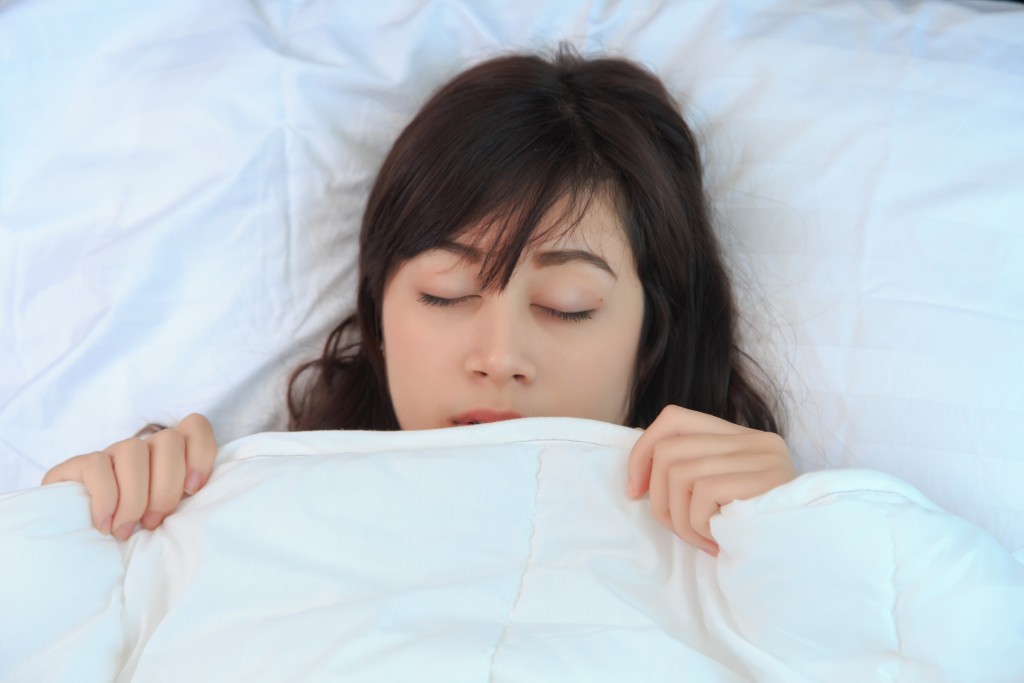A good night’s worth of sleep is as essential for the human body as is exercising regularly and maintaining a proper diet. Shortage of sleep can negatively impact your productivity, emotional balance, energy level, and even your weight.
Unhealthy daytime habits and lifestyle choices can go a long way in influencing how much you toss and turn around at night. Often, the cure for sleep difficulty rests in the kind of lifestyle you lead or the choices you make. With that done, here are five tips that can guide you to an overall better sleep at night.
1- Adhere to Your Body’s Natural Sleep-Wake Cycle
Following your body’s natural sleep cycle is one of the best ways to enhance your sleeping experience. Research states that once you determine and follow a set sleep and wake schedule for yourself, you’ll sleep better and find yourself to have more energy waking up compared to sleeping the same number of hours in a different period.
In fact, even altering your sleep schedule an hour or two can have a significant effect. Some of the best ways to fix a sleep-wake cycle for yourself are:
-
Make Sure you Sleep and Wake at the Same Time Every Day
By doing so, you’ll allow your body to adjust itself according to a set time and enhance the quality of sleep accordingly. You can start by choosing a time when you usually feel tired to sleep.
Once your body gets enough sleep, you’ll find yourself waking up naturally according to a set time. If you still find yourself needing an alarm, it would be wise to put your sleep time a bit earlier.
-
Take Efficient Naps and Fight Drowsiness
While naps are quite efficient in dealing with left-over sleep, long naps are not ideal for people facing problems sleeping at night.
An efficient nap of around 15-20 minutes early in the afternoon is a better alternative.
Furthermore, avoiding after-dinner drowsiness if it doesn’t adhere to your sleep schedule is a vital part of the plan. You’ll have trouble going back to sleep should you wake up in the middle of the night after giving in to after-dinner drowsiness.
2- Monitor Your Exposure to Light
Your body regulates your sleep-wake schedule with the help of a hormone known as melatonin. Your brain discharges melatonin in dark environments. That said, dark environments can make you sleepier more effectively than a light-filled one (which makes your brain more alert).
Remaining more active and alert during the day by regularly exposing yourself to sunlight and light-filled environments and maintaining the perfect dark and sleepy environment for yourself at night can effectively enhance your quality of sleep. Try not to use electronic devices within an hour or two of your determined bedtime.
3- Control What you Drink or Eat
 Yes, what you eat throughout the day can also affect your rest time at night. For example, substances or beverages containing nicotine or caffeine can have quite an adverse effect on sleep.
Yes, what you eat throughout the day can also affect your rest time at night. For example, substances or beverages containing nicotine or caffeine can have quite an adverse effect on sleep.
Did you know? Caffeine is known to cause sleep problems, even 10-12 hours after consumption. Smoking close to your bedtime can interfere with your sleep too. Besides that, avoid eating heavy meals close to your bedtime and try not to excess fluid intake during your day; this will help you avoid frequent bathroom trips during the night.
4- Opt for a Better Mattress
A high-quality mattress meant to specifically suit your needs can give you premium sleep. It may be surprising, but not everyone can take to a single type of bed. Different mattresses are meant to tailor to other people. The perfect bedding for you can provide a full night of quality sleep by providing a healthy sleep posture and proper support for your spine. With such cradling, the right sleeping bed can alleviate stress on your body by distributing the weight evenly.
5- Exercise Regularly
Exercising can have drastic effects on the quality of your sleep. The more you exercise, the better you’ll find yourself sleeping at night. However, the results can take months of exercise to fully kick in, and it can also reverse its effects should you exercise too close to bedtime. Thus, a healthier choice would be to exercise at least three hours before bedtime.
A good night’s sleep can provide lots of benefits, from alleviating your stress to greater productivity. Good sleep can result in lots of burdens taken off from your body, leading to overall greater health. That said, it is better to sleep regularly and timely to make sure you maintain yourself in the best and most efficient way possible.
